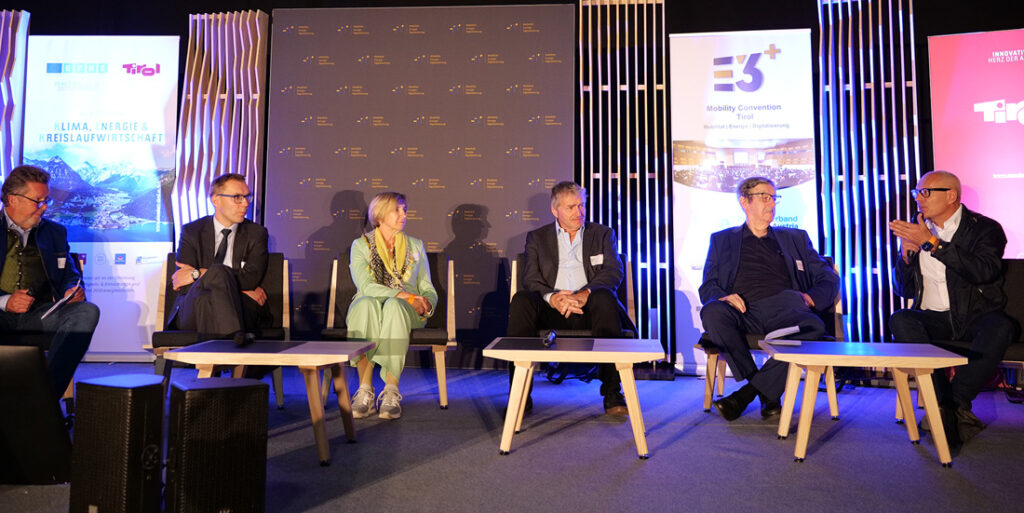Reducing CO2 emissions is essential to meet the challenge of climate change. Road transport accounts for a significant share of emissions: it is responsible for more than 50% of CO2 emissions from fossil fuels in South Tyrol. In Tyrol, the situation is similar, with over 40% of emissions caused by transport.
Therefore, the transition to e-mobility is crucial, and it is essential that it happens quickly, with measures involving both public and private transport.
The question then arises: what impact does the increase in electric vehicles have on the electrical infrastructure?
This was one of the questions addressed by Wolfram Sparber, Head of Institute at Institute for Renewable Energy at Eurac Research, in the panel “Best Practice trifft Macher” during the E3+ Mobility Convention Tirol 2023, one of the largest congresses on the topics of mobility and energy transition.
Wolfram Sparber’s presentation examined what the impact on the electricity grid can be under different scenarios, what the role of electric mobility in the energy transition can be, and what actions are needed to steadily increase the share of electric vehicles.
The Key Note presentation was followed by a panel discussion with Andrea Faast (Wirtschaftskammer Österreich), Andreas Kröll (Christophorus Reisen), Christian Vonnach (Intermaps), Gerhard Weinzinger (Technoma), moderated by Kurt Sigl (BEM).
The rapid transformation of mobility is a desirable goal and one of the keys to stimulate it is its positive impact on the tourism sector, as the results of the MOBSTER project show. During the panel “Tourismus trifft Transformation”, Wolfram Sparber shared the results of the project and explored the potential of electromobility in the context of tourism together with Markus Mailer (Universität Innsbruck), Sebastian Vitzthum (KEM Tourismus Zell am See-Kaprun), Gerhard Wimmer (KEBA), Martin Mai (Green Climate), moderated by Christian Clerici.


